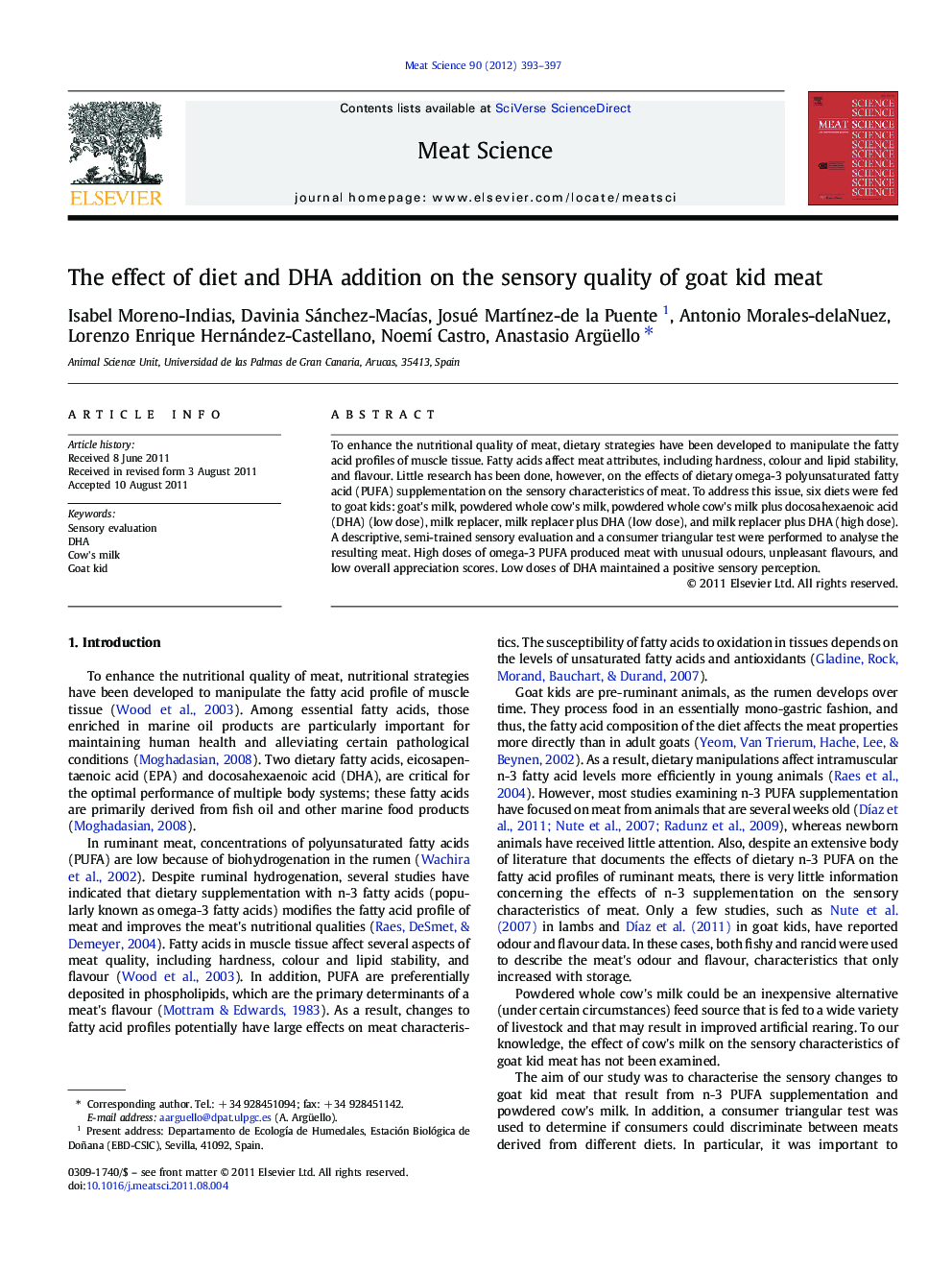| Article ID | Journal | Published Year | Pages | File Type |
|---|---|---|---|---|
| 2450249 | Meat Science | 2012 | 5 Pages |
To enhance the nutritional quality of meat, dietary strategies have been developed to manipulate the fatty acid profiles of muscle tissue. Fatty acids affect meat attributes, including hardness, colour and lipid stability, and flavour. Little research has been done, however, on the effects of dietary omega-3 polyunsaturated fatty acid (PUFA) supplementation on the sensory characteristics of meat. To address this issue, six diets were fed to goat kids: goat's milk, powdered whole cow's milk, powdered whole cow's milk plus docosahexaenoic acid (DHA) (low dose), milk replacer, milk replacer plus DHA (low dose), and milk replacer plus DHA (high dose). A descriptive, semi-trained sensory evaluation and a consumer triangular test were performed to analyse the resulting meat. High doses of omega-3 PUFA produced meat with unusual odours, unpleasant flavours, and low overall appreciation scores. Low doses of DHA maintained a positive sensory perception.
► Fatty acids profile of muscle tissues have been improved by dietary strategies. ► Powder cow's milk as a novel source of feeding goat kids animals. ► Sensory evaluation of different diets including DHA at different doses. ► Low doses of DHA maintained a positive sensory perception.
